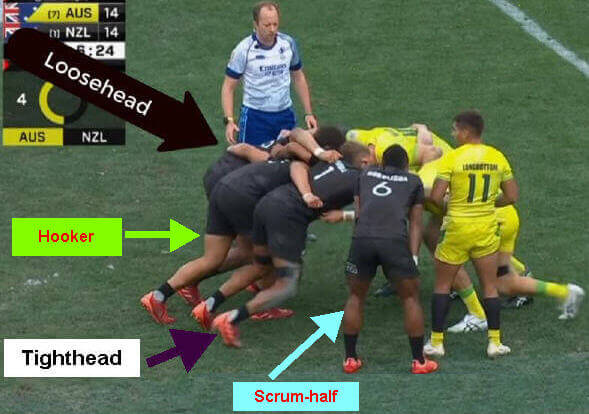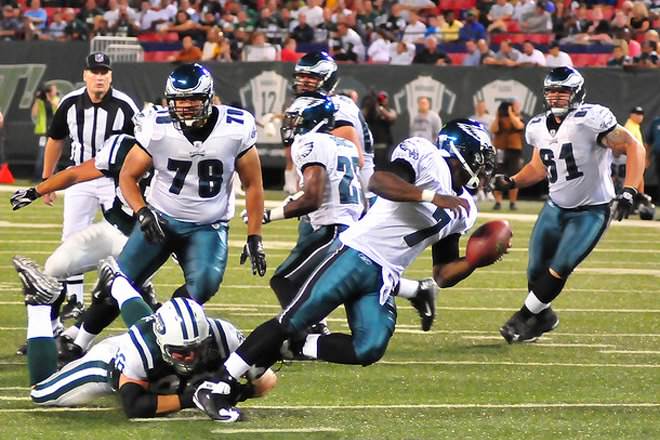
The idea of a world championship for rugby was originally conceived in the mid-20th Century. In 1984, the International Rugby Board (IRFB), conducted a feasibility study. Australia was the first to propose the tournament. The IRFB rejected two proposals, but the concept was revived in the mid-1980s. In 2009, the International Olympic Committee approved rugby being included in the Olympic Games. In 1988, England versus Scotland held the first international match in rugby. The tournament was also held in Japan the year after, making Japan the first Asian team to host it. It was also the first tournament where all matches were played at one country's grounds.
The International Rugby Board held an international vote on the idea for a World Cup. A vote of 10-6 was cast. Two proposals were rejected. However, the IRFB was convinced that a rugby worldcup was a good idea and a proposal for a world cup was approved. Initially, the competition was limited to 16 countries. However, it was later expanded to include 20 nations. During the tournament, New Zealand won four Rugby World Cups. The All Blacks won the tournament and were the first to win the title three more times. They also became the first to defend the title.

In the year before the tournament, England and New Zealand had been beating each other home and away. England was expected to win the tournament. They did not make it to the Quarter Finals. Wales, however, were eliminated in their Semi-Final match. However, England came close to defeating Australia in the final. The match went into extra time, with Elton Flatley kicking a penalty. Chris Wilkinson scored the drop-goal to win, as the clock was running out. It was a momentous moment in the sport's history.
After the initial IRFB determination, the idea for a world cup was revived. To plan it, the IRFB consulted all its member unions. However, the idea was deemed unnecessary, as the IRFB did not want member unions to participate in the world championships.
In December 1984, the International Rugby Board (IRFB), began a feasibility study. This feasibility study was to establish the costs, timeframe and logistical requirements necessary for holding a global cup. South African delegates were also consulted about the possibility of a world Cup by the IRFB. South Africa's apartheid government had for years boycotted international sporting events. Only after the end the apartheid, the IRFB was able readmit South Africa to the competition.
During the tournament, New Zealand became the dominant force in Rugby World Cups. They were predicted to win the tournament the fourth time. They were also able to win the tournament in 1999 and 1996, adding to their success.

England failed to advance past the pool phase in 1991, and was eliminated in 1999 in the Semi-Finals. England was expected to defeat the Springboks at the final of the 2003 tournament. The Wallabies, however, came back from 20-0 down to win the final 20 seconds.
FAQ
Are children allowed to do extreme sports?
The answer depends on whether you discuss sports as a whole or individual sporting activity. If they are talking about all sports, they should consider them. But, if you're talking about specific sports (i.e. skiing), it will depend on what type of skiing they are interested in. Some people like extreme sports, such as bungee-jumping, while others prefer the more gentle downhill skiing. It also depends on how much risk is involved. A person who loves bungee jumping may not be able to skydive because they fear heights.
What is the appeal of extreme sport?
Extreme sports can prove dangerous. Extreme sports can be dangerous, but they provide adrenaline-pumping thrills as well as a feeling of accomplishment.
Extreme sports are expensive and time-consuming. However, they are accessible to those who otherwise would not have been able to do them.
These factors are why extreme sports are so popular. If you are considering taking up extreme sports, consider whether you would be willing to take on a risk that could lead to your death.
Do extreme sports require expensive equipment?
Yes. Extreme sports equipment costs thousands of dollars. However, these people don't need a lot of money.
Statistics
- Nearly 40% of all mountain bikers have at least graduated from college. (momsteam.com)
- Approximately 50% of all wakeboarders have been participating in the sport for 1-3 years. (momsteam.com)
- Landscaping and grounds-keeping— according to government labor statistics, about 18 out of 100,000 workers in the landscaping industry are killed on the job each year. (rosenfeldinjurylawyers.com)
- According to the United States Parachuting Association, about 21 people die yearly from skydiving. (livehealthy.chron.com)
- Since 1998, overall participation has grown nearly 25% - from 5.2 million in 1998 to 6.5 million in 2004. (momsteam.com)
External Links
How To
How can you master parkour skills?
Parkour can be described as a free-running technique in which people run through obstacles, such as trees, fences or buildings. It's one of the most popular sports in the world, with millions of participants around the globe. Parkour can be done in many ways, including freestyle, wall climbing and obstacle courses, urban exploration, rescue, freerunning and urban combat.
You can define fitness as any activity that improves your physical fitness or overall health. It could mean going to the gym or walking. Parkour is considered to be a sport as it requires the athletes to use their body strength.
Here are some tips for beginners who want to start training parkour:
-
Places that can cause injury or stairs should be avoided. Flat ground is best, so avoid hills. However, if you have the ability to climb up a tree then do so.
-
Wear proper footwear, like shoes made from rubber or leather. Try them all to find the one that feels right for you. A parkour session can be made or broken by the right shoes.
-
Take water bottles with you and snacks for practice sessions.
-
Warm up before starting any parkour sessions. This means warming up your muscles and getting ready to go. Start off slow and gradually build up the intensity so that your muscles are fully warmed up.
-
Do not rely too much on your arms and legs when jumping. Instead, use your core and back muscles more to overcome obstacles.
-
Do not overdo it. Take breaks whenever you need to. This allows you to recover quickly from the exercise without getting injured.
-
Parkour can be enjoyed while you listen to music. Music can help you relax and focus better.
-
Stretch your muscles and joints after each session to prevent injury.
-
When you are exercising in public, make sure to keep your hands clean. You won't endanger another person by doing this.
-
You can keep track of your progress by keeping a log. This will allow you to keep track of your strengths and weak points.
-
Parkour is for having fun. Enjoy the journey and don't let fear of falling stop you from enjoying it. Do not be afraid to fall. Get up and keep going.
-
Every day, learn new tricks.
-
You should eat healthy foods. Consuming a high-protein diet will allow you to gain muscle mass more quickly.
-
To help you grow, find a mentor. Mentors teach you how certain moves are made and also offer guidance on improving your skills.
-
Do not be afraid to ask for clarifications. The people who love to share their knowledge with others are always happy to answer questions.
-
Practice makes perfect. Train whenever you can.
-
Have fun
-
Last but not least, be safe